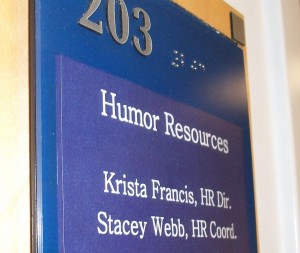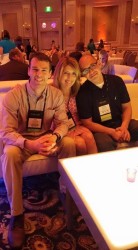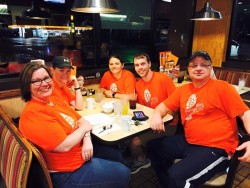 Transformational learning, or transformative learning, is focused in part on learning that drives us to do things. Today I’m going to talk about what listening to over 500 hours of podcast programs has done for my learning, but first I’d like to tell a quick story.
Transformational learning, or transformative learning, is focused in part on learning that drives us to do things. Today I’m going to talk about what listening to over 500 hours of podcast programs has done for my learning, but first I’d like to tell a quick story.
Back when I was in high school, I played football. I was one of the smallest defensive players but somehow managed to nab a slot on the front line as a defensive end. I don’t know about you, but being ~170 pounds and facing the midsection of a 325-pound offensive tackle after he has just pulverized you into the dirt for the fiftieth time in a row isn’t my idea of a good time.
Anyway, after the Friday night games I would drive to my girlfriend’s house and we’d watch movies and have dinner together until I had to get home for curfew.
One night I was pretty tired (probably from a hard night of playing crash test dummy for a handful of 325-pound linemen, but I digress), and I was switching the radio around to find a station that would help me to stay awake for the 20 minute drive home. I happened across what sounded like an old radio program, and I realized it was a Twilight Zone episode that had been recorded for radio listeners. I was instantly hooked.
From that point on, I would leave her house every Friday night in time to listen to the first of the episode in the car. When I got home, I would park the car, wait for a commercial break, run into the house, and turn on my radio in my bedroom to listen to the rest of the episode. It was a strange and wonderful ritual, and I can still remember listening intently to some of the stories in my dark room after midnight. Spooky, but fun.
Even then I knew that audio was a more intense experience for me. I’ve read hundreds of nonfiction books in my lifetime, and I think my imagination is better for that. But I also love the opportunity to listen to stories and learn in the audio format. When I’m listening to fiction it feeds that imaginative nature and builds creativity, and when I’m listening to informational/nonfiction work I get the chance to boost my performance in all areas of life without having to dedicate the time I would if I was exclusively reading for transformational learning and personal development.
500 hours of podcasts – check
I popped open Stitcher, my favorite podcasting app, the other day and was surprised to see my “total hours of listening” number had reached 500.
In the big picture, 500 hours isn’t too much of my life. But to put it in perspective:
- I used to count ~2000 hours as the workload for a full time staffer for one year. So if I was employed to listen to podcasts, it would be a full time job for three whole months.
- If I follow the principles in The First 20 Hours, I could learn 25 new skills with that time.
- If the average TV show is ~40 minutes without commercials, I could have watched about 750 shows.
Now, I know that 500 hour figure is scattered over the past two or three years that I have been using the Stitcher app on my Android, but I’m amazed at it nonetheless. In case it’s not apparent, I very much enjoy listening to audio.
But this isn’t just about my preferences. I think you would enjoy it, too. In the rest of this article I’m going to talk about what I listen to, why, how, and when/where. I hope this helps you to get a better understanding and maybe even drives you to check out some of the options out there.
Podcasts I listen to
I listen to a variety of podcasts and am always searching for more to add. I don’t do profanity, but otherwise I’m open to checking out pretty much anything.
- HR Happy Hour–a show that lasts less than an hour, but is packed with fun conversation, interesting people, and trends affecting the world of HR.
- Smart Passive Income–this show features great topics surrounding the world of internet marketing and has helped me with this site as well as with HRevolution.
- 48 Days to the Work You Love–I have listened to Dan Miller on this podcast for over 8 years now. I can remember listening to an episode while driving on my honeymoon back in 2007. Great content on careers, doing what you love, and entrepreneurship. Very positive.
- Entreleadership–Dave Ramsey’s small business/leadership focused content. They usually interview a nonfiction author and discuss the person’s latest book. Good for content focused in small chunks on specific topics.
- Michael Hyatt–I recently added Michael to my list after several stops and starts. I like some of the content but other parts are too general/generic for me. He was the former CEO for Thomas Nelson publishers, so I like the book publishing information but some of his leadership stuff just isn’t hard-hitting enough for me.
- Pseudopod–Last year I added some content like this and the next one as a way to get more “fun” out of the podcast medium. Pseudopod is a horror fiction show (they also produce both SciFi and fantasy options) with great narration and stories. Not every story is a winner, but often times they are.
- No Sleep Podcast–This is the first podcast I’ve ever paid for. David, the editor, started the podcast on a whim a few years back. I was listening from the beginning. A year later he quit his job to do podcasting full time. The NSP typically covers several shorter stories and are less subtle than Pseudopod, but still great.
- How to Do Everything–this is an NPR podcast where the hosts talk about news, listener calls, and how to do, well, everything. For instance, recently a listener called and asked why they couldn’t wear a penguin costume for the “penguin encounter” at their local aquarium. The hosts interviewed someone about penguin life in the aquarium and it was very interesting. Another recent episode talked about how one college in the UK used micropigs to help lessen testing stress. Yes, it’s usually funny as well.
- Freakonomics–I’ve mentioned my love for Freakonomics here several times. Being a college economics professor was always one of those things I dreamed about doing but somehow made it into HR instead. I love economics and learning more about some of the unasked questions these guys focus on in the show. Very entertaining and informative.
This is not necessarily a podcast, but I also use iHeartRadio to listen to the Dave Ramsey show replay whenever I have exhausted current episodes in my podast list or when I need something that is safe for family listening.Â
Why I listen
Three simple words: enjoyment, entertainment, and education.
- Enjoyment:Â I just want something interesting to listen to (I rarely, if ever, listen to music in the car #fact).
- Entertainment: I’m doing something unpleasant and want a distraction (dishes, cleaning the garage, or organizing my office).
- Education: I am focused on a specific area and want to improve my learning (marketing, writing better copy, improving knowledge of enterprise HR vendors, etc.)
I love sharing things I hear and learn. Last week I was coaching a lady at a job fair and asked her what kinds of things she watched, read, and listened to. Her response was “junk.” I gently reminded her that what we have to say is a direct result of what we’re putting into our brains. If we want to be positive, engaged people with intelligent things to say, then we need to be putting those kinds of things into our heads.
Years ago Earl Nightingale released what some consider to be the first ever motivational audio recording (it was on an actual record, if that tells you how far back). It was called The Strangest Secret. The gist of it was this: we become what we think about. If you spend the majority of your nonworking time thinking about TV, celebrities, and other things that have zero impact on your life, then you will ultimately see the results. Similarly, if you spend a portion of that time listening and reading, you’ll see those results as well. I have documented well my love for reading, which is due in part to great quotes like this:
“The difference between where you are today and where you'll be five years from now will be found in the quality of books you've read.†– Jim Rohn
But today we’re focusing not on reading, but on tranformational learning via audio. It breaks down the barrier of “I don’t like reading” for those of you that use that as a reason to avoid any sort of personal development.
I would encourage you to open your favorite podcast app and do a few quick searches for things you like. This doesn’t have to becessarily be about learning HR and leadership, although it doesn’t hurt to pick up some new ideas in those areas. For instance:
- If you like cars, find a car/auto show
- If you like knitting, find a knitting/crafts show
- If you like small business, find an entrepreneurship show
- If you love being a parent, find a parenting show
- If you enjoy inspirational stories, find an inspiring/uplifting show
There are hundreds of options. Once you start narrowing them down you’ll have your own custom playlist, and I’d love for you to share it with me in the comments below. If you already listen to podcasts, what is your favorite show?
How I listen
I use the Stitcher app on my Android Moto X to play the podcasts. It was funny, because on a recent weekend trip we were in an area without service for a period of the drive. My wife asked how I was able to listen to the podcasts because she wasn’t even able to get Facebook up on her phone. :-)
What I do in order to save date usage is I’ll turn on the app when I’m at home or somewhere with WiFi (which is pretty much anywhere these days). It will automatically download and sync the latest episodes of my favorite shows for offline listening on the go.
For what it’s worth, I use a basic set of headphones (like these) but I’d love to have a wireless/Bluetooth pair at some point.
Where/when I listen
As I said above, I listen to podcasts when I’m driving, when I’m doing physical labor somewhere, or when I am trying to keep myself awake.
When I am doing dishes or something where I’m fairly stationary, I will often keep headphones off and let it play out loud as long as it’s family friendly (some of the horror shows are a bit much for everyone else in the house). I love the idea of the kids growing up listening to positive, encouraging audio like Zig Ziglar and Dan Miller’s 48 Days show, though.
Funny enough, here are the times I rarely listen:
- When I’m running
- When I’m working
Yes, I know. That is when many people most want to listen. I’m not saying that this is the “right” way to do it; I’m just saying that it is an example of my own personal preference for the medium. Enough about me and my habits, what about yours?
Do you listen to podcasts? What kinds? Where is your favorite place to listen? Why?
 Taking an informal mentoring role in support of someone else is easy, and you can start in minutes. Plus you get the chance to help shape the direction of someone else’s path, and that is an exciting prospect. Today I’m going to talk about how you can do this in your own life to bring inspiration and guidance to someone else.
Taking an informal mentoring role in support of someone else is easy, and you can start in minutes. Plus you get the chance to help shape the direction of someone else’s path, and that is an exciting prospect. Today I’m going to talk about how you can do this in your own life to bring inspiration and guidance to someone else. Transformational learning, or
Transformational learning, or  Krista Francis is the HR Director for Jubilee of Maryland, a nonprofit organization. As you can see in this picture, she changed the title of their department for a time to “Humor Resources” as a way to get employee comments and demonstrate their own sense of humor in the team. I think this is fun because people often see HR as the “no police,” not as a source of humor. Side note, check out the
Krista Francis is the HR Director for Jubilee of Maryland, a nonprofit organization. As you can see in this picture, she changed the title of their department for a time to “Humor Resources” as a way to get employee comments and demonstrate their own sense of humor in the team. I think this is fun because people often see HR as the “no police,” not as a source of humor. Side note, check out the 



 Breaking News: Micromanagement has the last word, now recognized as valuable business practice
Breaking News: Micromanagement has the last word, now recognized as valuable business practice A few weeks ago I received a strange text from my cousin. He wanted to know if I would be interested in trying out for a game show called
A few weeks ago I received a strange text from my cousin. He wanted to know if I would be interested in trying out for a game show called